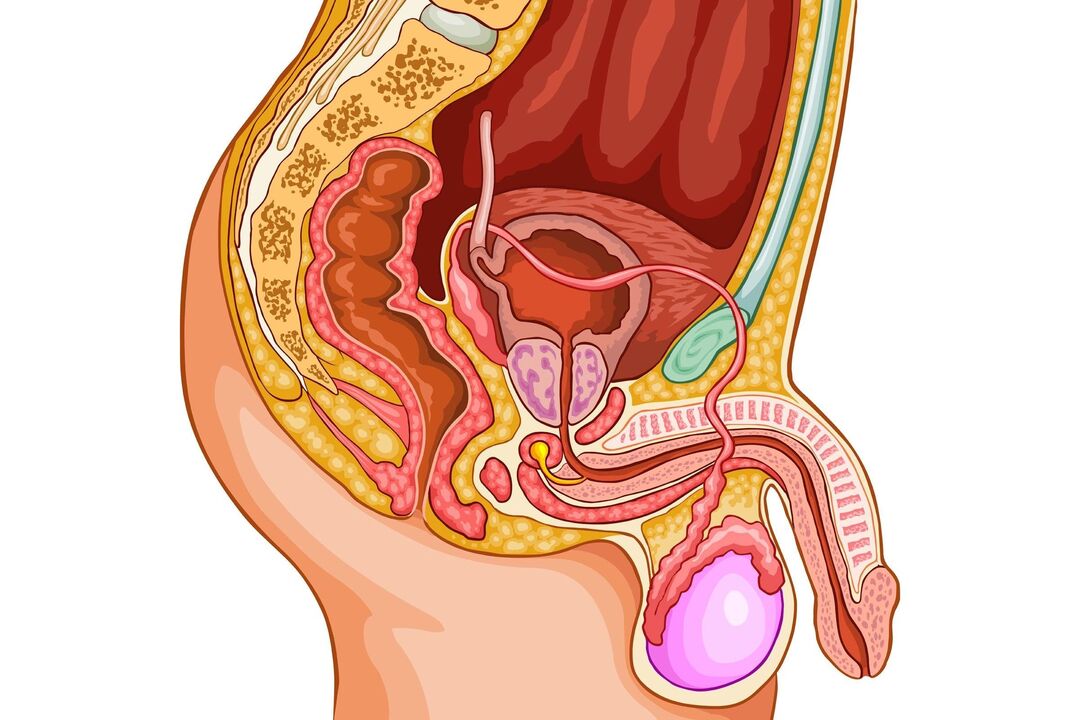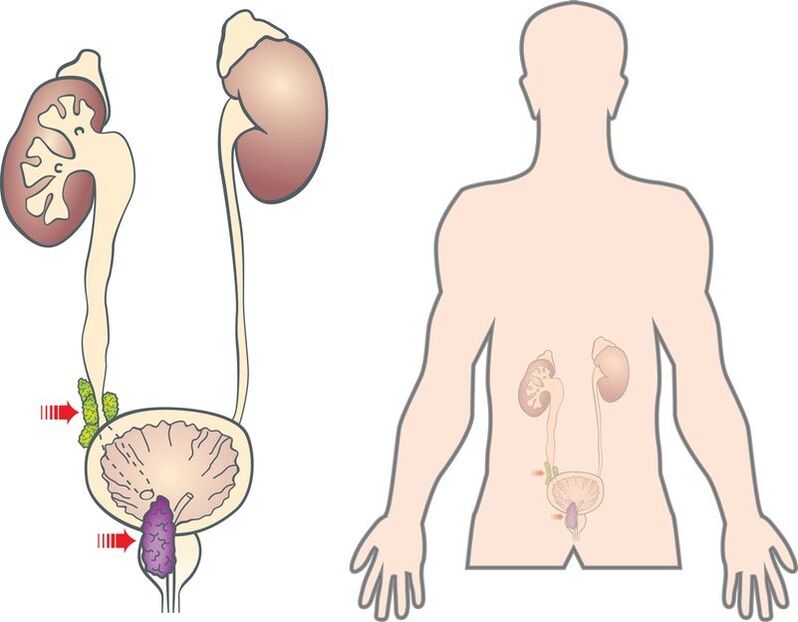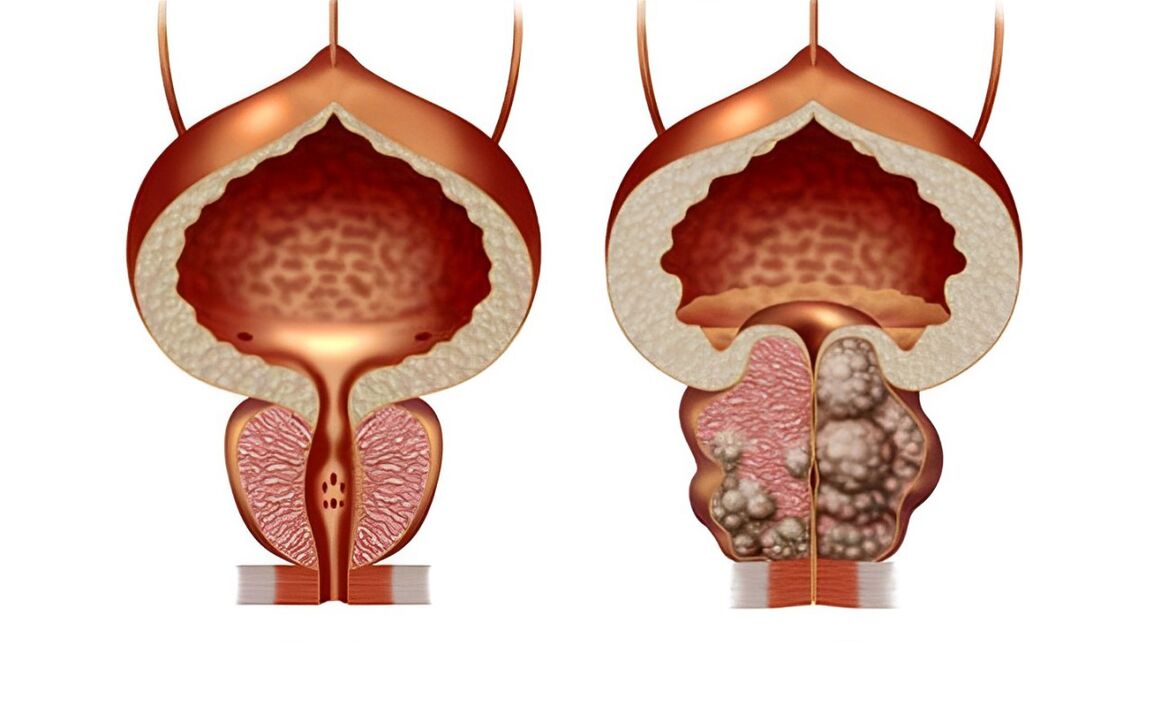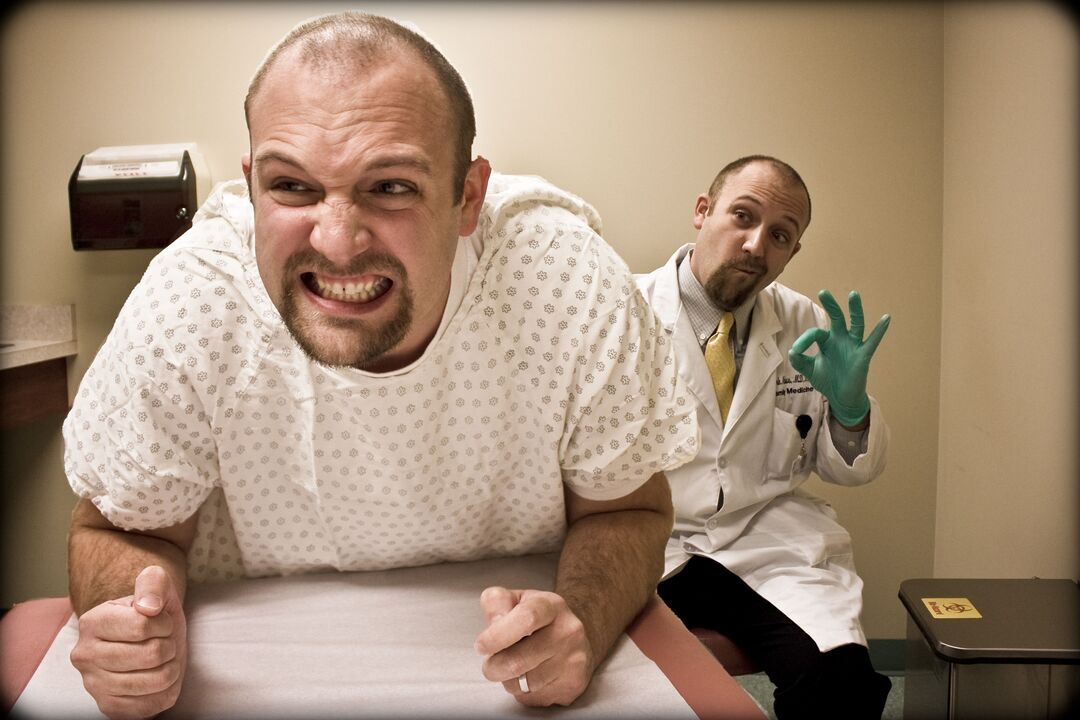
Inflammatory processes occurring in the prostate bring a lot of discomfort to men suffering from this pathology. The development of the disease occurs against the background of prolonged sexual abstinence, the presence of sexually transmitted and genitourinary infections, weak immunity and various hormonal imbalances in the body. In addition, prostatitis can be caused by pathogenic bacteria or viruses.
What is prostatitis and how to treat it?
The modern pharmaceutical market offers many highly effective drugs for the treatment of this pathology. When no infectious pathogens are detected during the diagnosis of prostatitis, we speak of chronic inflammation of the prostate of a non-bacterial nature. Risk factors for non-infectious prostatitis are congestion in the pelvic area, characterized by impaired microcirculation in the venous system, excessive secretion of the prostate gland and seminal vesicles, which causes blood flow disorders in the genitals. However, before starting therapy, you should always consult a qualified specialist.
Features of the inflammatory process of the prostate (prostatitis)
This disease affects 1/3 of all representatives of the stronger half of humanity. The disease mainly affects men aged 20 to 60. The disease can develop in the presence of the following factors:

- Congenital (decreased hormone levels, impaired blood flow in the prostate gland, pathological changes in the structure of the acini);
- acquired (previous genitourinary diseases, the presence of foci of infection in the body, promiscuity or, conversely, long-term abstinence from sexual intercourse, sedentary lifestyle, temporary decrease in body temperature).
Types of pathologies and drugs for treatment
Inflammation of the prostate gland can manifest itself in the following forms:
Acute prostatitis of an infectious (bacterial) nature. It is characterized by the presence of specific symptoms and requires immediate contact with a specialist. Acute prostatitis develops following exposure to pathogenic bacteria and microorganisms. According to statistics, this form of the disease occurs in 15% of men suffering from this pathology.
Acute prostatitis is characterized by the following symptoms:
- chills;
- increased body temperature;
- signs of general intoxication of the body;
- frequent urination, accompanied by pain and purulent discharge from the urethra;
- pain in the sulcus area, radiating to the lumbar spine.
Chronic prostatitis of an infectious nature. It is a slow inflammatory process characterized by the absence of pronounced symptoms. This form of the disease can occur against the background of insufficiently treated or untreated acute prostatitis. Symptoms of prolonged inflammation of the prostate gland may be as follows:
- Irritability;
- difficulty urinating, accompanied by a burning sensation;
- nagging pain in the perineum, radiating to the pelvic organs and rectum.
Treatment of chronic prostatitis takes much longer than acute prostatitis, and the choice of drugs is determined by the individual characteristics of the body, the presence of complications and the type of drugs used previously.

In addition to antibiotics, used to treat acute prostatitis, analgesics, immunomodulators, suppositories, therapeutic massage and physiotherapy are prescribed.
Prostatitis without infectious etiology. It is the most common type of disease, the origin of which has not yet been fully studied.
Asymptomatic prostatitis
Forms of drugs for the treatment of prostatitis
Medicines for the treatment of prostatitis are available in the form of tablets, injections, instillations, suppositories and microenemas. Tablets, which are usually antibiotics, have a broad spectrum of action and are usually prescribed in situations where the causative agent of the pathology has not yet been identified.
Often, special suppositories are used in the treatment of prostatitis, which are administered rectally. Such drugs have an antibacterial effect and effectively relieve pain. Injectable solutions that have a stimulating effect on the vascular and protective systems of the body have the greatest therapeutic effect.
Among the various methods of prostate treatment, the rectal therapy method is the most effective.

Treatment of prostatitis often involves a method such as instillation, in which a drug is injected directly into the patient's urethra. Before the procedure, the man should completely empty his bladder. No more than 5 ml of medicinal solution is administered at a time.
Additional means for the main treatment can be microenemas, which are prepared on the basis of herbal infusions and decoctions. The principle of this technique is to use a complex temperature effect of the drug on the foci of inflammation. The procedure is carried out before going to bed, since after a microenema overload or hypothermia of the prostate gland is not allowed.
Drugs for the treatment of prostatitis in men
First of all, antibiotics are prescribed for this disease. But before starting antibacterial therapy, a study of bacterial culture is carried out to determine the causative agent of the disease, and depending on the results obtained, one or another type of drug is determined. The course of antibacterial therapy lasts on average 1 month.
Treatment with antibiotics in tablets is carried out for bacterial inflammation of the prostate in acute and chronic forms. In case of complications, antibacterial agents are administered via injection. If the causative agent of the pathology cannot be identified, combined antibacterial therapy is used.
Medicines that have an analgesic effect significantly facilitate the course of the inflammatory process, however, they should be used strictly as prescribed by the doctor. Uncontrolled use of such drugs can cause unwanted side effects.

Among analgesics, the greatest effectiveness in the treatment of prostatitis was demonstrated by a non-steroidal anti-inflammatory drug with an extended release form and a wide range of indications. The use of a-blockers is due to the relaxing effect of these drugs on the neck and bladder muscles, which significantly reduces the intensity of pain accompanying the urination process. But such drugs can cause side effects such as headache and hypotension. These drugs are prescribed for chronic nonbacterial prostatitis.
Any pathology, including prostatitis, causes a weakening of the body's immune defense, therefore, along with the main treatment, the doctor prescribes drugs whose action is aimed at restoring and strengthening the immune system. These can be drugs from the group of immunomodulators, which includes interferons and other pharmacological agents.
Muscle relaxants are also widely used in the treatment of prostatitis, the action of which is aimed at reducing muscle tone in the perineum, allowing the patient to get rid of pain and discomfort during urination. The most effective muscle relaxants are considered centrally acting muscle relaxants and a remedy for pain and spasms of smooth muscles.
The use of hormone therapy is determined by the need to reduce testosterone levels, which causes an increase in the size of the prostate gland. As a result of such treatment, hormone levels are normalized and the intensity of the inflammatory process decreases. In some cases, herbal remedies are used as an adjunct therapy to eliminate pain, inflammation, and swelling.
Preparations containing herbal components are often used in the treatment of chronic forms of prostatitis. Prostatitis of bacterial origin is treated by taking antiviral drugs: drugs used for the same indications, but differ in the mechanism of action and active ingredient.

Anti-inflammatory drugs from the non-steroid group are used as a supplement. The effect of such drugs is to eliminate the symptoms accompanying inflammation of the prostate (swelling and pain, increased body temperature).
Suppositories containing nonsteroidal anti-inflammatory substances, for example, nonsteroidal anti-inflammatory drugs, have shown high effectiveness in the treatment of prostatitis. This group also includes drugs that have powerful anti-inflammatory, analgesic and antipyretic effects.
Furthermore, therapy for inflammation of the prostate involves the use of drugs whose action is aimed at improving blood flow to the prostate.
Popular drugs for the treatment of prostatitis
A drug that helps in the treatment of diseases of the genitourinary system in men and women - a medicine based on herbal components that prevents the growth of prostate glandular tissue. It helps eliminate inflammation and normalize metabolic processes, as well as improves blood supply to the prostate gland. In addition, the medicine reduces the size of the prostate, eliminates difficulty urinating and improves the functioning of the genitourinary system, restores glandular functions, and also reduces swelling and inflammatory manifestations in the prostate gland.
The drug is prescribed for complex therapy of complicated prostatitis. The course of treatment lasts up to 4 months. The drug has no contraindications or side effects.
A bactericidal antibiotic from the group of semi-synthetic penicillins, resistant to penicillinase, is a highly effective antibiotic used to treat prostatitis. The drug is a semi-synthetic antimicrobial drug belonging to the class of β-lactam antibiotics, which has bactericidal effects against streptococci, staphylococci and other gram-positive microorganisms.
A drug intended for the treatment of various diseases of the genitourinary system in men is a suppository drug based on antibiotics with anti-inflammatory and antibacterial effects. The use of rectal suppositories improves the quality of sperm, helps restore the muscle functions of the bladder, normalizes the urination process, and also reduces the risk of blood clots in the vessels of the prostate gland. Rectal suppositories are prescribed after prostate surgery or in the treatment of chronic prostatitis. The treatment cycle lasts 10 days, with the administration of one suppository per day. Read the instructions carefully: the drug intended for the treatment of various diseases of the genitourinary system in men can cause a side effect, which is manifested by itching in the anus.
The drug, which contains a natural ingredient - the extract of climbing palm fruits - is available in capsules and belongs to decongestant and anti-inflammatory drugs. The drug has shown rather high effectiveness in the complex treatment of inflammation of the prostate, which is why it is often prescribed to patients suffering from this pathology.
Popular antibiotics for the treatment of prostatitis
Despite the fact that drugs for the treatment of prostatitis have practically no contraindications, you should not use them yourself. The dosage, selection of drugs and correction of the course of therapy are carried out only by a specialist, taking into account the intensity and duration of the inflammatory process.
























